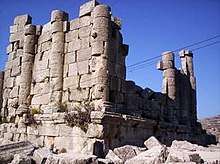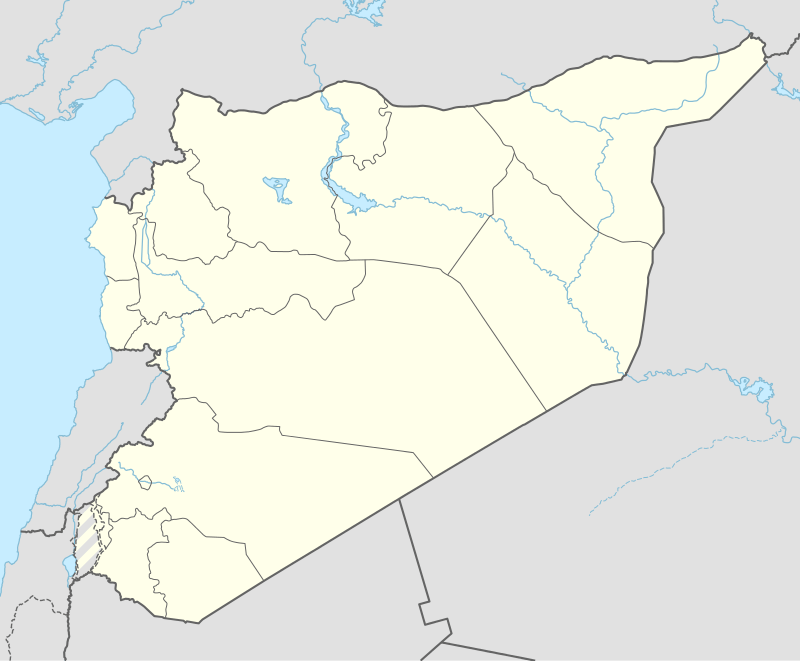Hosn Suleiman
Hosn Suleiman (Arabic: حصن سليمان), a Syrian village, is found on the slope of the Al-Nabi Saleh mountain (جبل النبي صالح) at an altitude 950 m, at a distance of 20 km from Duraykish and 56 km from Tartous.
حصن سليمان | |
 Hosn Suleiman temple | |
 Shown within Syria | |
| Location | Syria |
|---|---|
| Region | Tartus Governorate |
| Coordinates | 34°55′49″N 36°14′43″E |
History
Hosn Suleiman was known as Baetocaese which was famous for its slave market.[1] The town had a temple of Zeus (بيت سيسي) and it is hinted from the naming that it bears semitic roots derived from Zeus's name. Also known as Baal (Bel) temple, ascribed to the god Baal. Still there is a village nearby called Betalous (بتعلوس). Baal was called also Baalous, and a Roman emperor existed as Elagabalus.[2]
The location was in close relation with Arwad kingdom (Arados) in the times of Phoenicians, and was a source of wood for the shipping industry. It was an important site during the Hellenic and Roman periods. Syria was then part of the Seleucid Empire.
The current naming is derived from King Solomon (Ar: سليمان). Visitors can see the huge stones of the temple, with inscriptions in ancient Greek and Latin.
References
- James Albert Harrill (1998). The Manumission of Slaves in Early Christianity. Mohr Siebeck. p. 38. ISBN 9783161469350.
- "حصن سليمان".
| Wikimedia Commons has media related to Hosn Suleiman. |